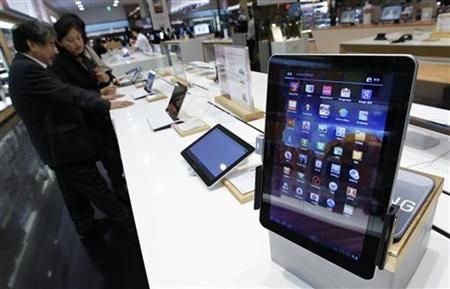Tech Patent Wars 2012: No Settlements in Sight

Technology companies appear likely to resume battle in 2012 on three major fronts of the patent wars: smartphone designs, operating systems and semiconductor chip sets.
Despite passage of copyright reform under the America Invents Act in September, technology lawsuits persist and experienced lawyers worry that little will change.
I haven't seen anything to suggest there will be a change, intellectual property lawyer S. Gregory Boyd, of New York's Parker & Gilbert told International Business Times. This whole thing has been on the rise now for five years, and no one's incentivized to change.
2011 closed with several highly publicized cases which all may see action during the first half of 2012. Rather than settle and arrange for cross-licensing and patents -- with precedents involving chipmakers Intel and Advanced Micro Devices between themselves, Texas Instruments with many other chipmakers and IBM with other manufacturers -- the lawsuits remain far from settlement.
Apple's complex lawsuits
Early in the year, the U.S. International Trade Commission, a quasi-judicial agency, may take up again Apple's complaints that patents for its entire iPhone line have been infringed upon by Samsung Electronics, HTC and others.
In mid-December, the ITC ruled that Taiwan-based HTC had infringed on an Apple data-detection patent but not on three other claims alleged by the Cupertino, Calif.-based iPhone developer. HTC said it would drop It immediately rather than be barred from U.S. imports.
Meanwhile, the ITC is still expected to rule on whether Apple and BlackBerry developer Research in Motion infringed on imaging patents owned by Eastman Kodak, the Rochester, N.Y.-based photography pioneer.
Other patent cases brought by Apple are pending in Australia, before the European Commission in Brussels and in courts in Germany, where Apple won a temporary sales ban on sales of Samsung's Galaxy S phones, which was later lifted.
Despite its bitter rivalry with Samsung, Apple doesn't manufacture anything and relies upon the Korean company for many parts of its iPhone, iPad2 and MacBook products.
Under new CEO Tim Cook, Apple might settle disputes launched by his predecessor, Steve Jobs, and take money instead. Ninety-five percent-plus of these cases get settled, lawyer Boyd told IBTimes.
The Oracle vs. Google War
Separately, Oracle sued Google over alleged infractions of the Java operating system for Google's Android OS for smartphones and tablets. Java came with Oracle's $7.4 billion acquisition of Sun Microsystems in 2010.
After extensive litigation, U.S. District Court Judge William Alsup ruled that an Oracle damage claim of $6 billion was excessive and ordered Larry Ellison, CEO of Redwood Shores, Calif.-based Oracle, and Larry Page, CEO of Mountain View, Calif.-based Google, to meet before a federal magistrate to make a deal.
Negotiations to date have failed and Alsup could order trial to begin early in 2012. In November, the judge ruled that a potentially damaging Google e-mail to Android chief Andy Rubin could be admitted at trial.
We conclude that we need to negotiate a license for Java under the terms we need, the e-mail from a Google engineer reads.
Rambus vs. All the chipmakers
In the chip wars, perennial litigant Rambus, the Sunnyvale, Calif.-based designer of high-speed interfaces for memory chips, lost a lengthy jury trial against both Micron Technology and Hynix Semiconductor in November but then signed a cross-licensing and royalty deal with Broadcom in late December.
Rambus still has lawsuits pending against Nvidia but over the past decade has set up licensing deals with Infineon Technologies, Samsung, Intel, AMD, Sony, Toshiba, Elpida, Matsushita, Renesas and Sony.
For 2011, Rambus shares have fallen 63 percent, lowering its market capitalization to only $839 million, only a fraction of its 2006 value.
© Copyright IBTimes 2024. All rights reserved.






















